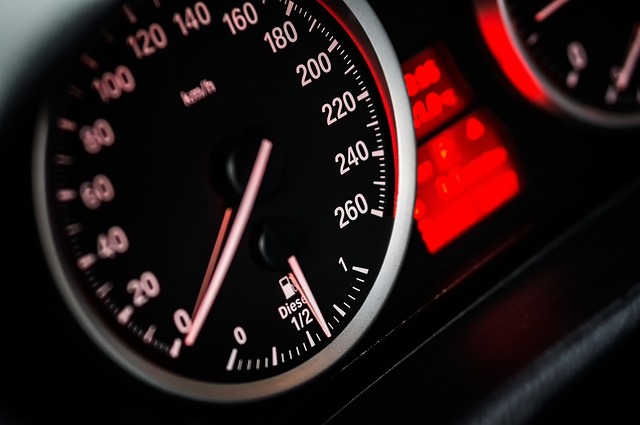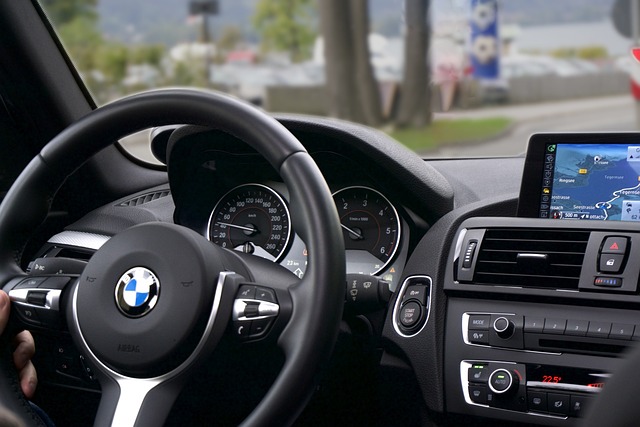When managing the end of a Personal Contract Purchase (PCP) for a car in the UK, it's crucial to fully grasp your contract's terms, including the agreement duration, initial deposit, pre-agreed mileage limit, final balloon payment, and monthly payments. You have options at the end of the contract: pay off the balloon payment to own the car, return it without penalty if circumstances change, or part-exchange it for a new financed vehicle. When returning the car, ensure all payments are up to date, provide all keys, and stay within the agreed mileage to avoid extra charges. Communicate with your finance provider early on to understand the specific steps for the return process and any potential PCP claims or charges you may face. Keep detailed records of all transactions and communications for a smooth handover. If returning the car without penalty due to a change in circumstances, notify the finance company within the agreed notice period. The car will be assessed based on its mileage and condition, considering fair wear and tear; if it meets the criteria, you could receive a refund of any overpaid amounts. To maximize your PCP claim's value, maintain a complete service history, time your return strategically, keep your car in top condition, research market trends for similar models, and establish a good relationship with the dealership. Always adhere to your contract terms to avoid complications and ensure the best possible settlement figure when concluding your PCP agreement in the UK. Remember to address any discrepancies in the final settlement figure with your finance provider promptly, and maintain accurate records to support your PCP claim process.
Navigating the end of a Personal Contract Purchase (PCP) agreement can be a strategic move for car owners in the UK. This article demystifies the process of returning your vehicle and maximizing your PCP claim value. We’ll explore the nuances of your PCP agreement, outline clear steps for a smooth return, and provide actionable tips to enhance your claim’s outcome. Whether you’re considering a new car or the end of your current lease, understanding your options is key. Dive into the essential details to ensure you handle your PCP return with confidence and clarity.
- Understanding Your PCP Agreement and Return Options
- The Process of Returning Your Car After a PCP Agreement
- Tips for Maximizing Your PCP Claim Value in the UK
- Handling Unexpected Issues When Returning a Car Under PCP Terms
Understanding Your PCP Agreement and Return Options

When concluding a Personal Contract Purchase (PCP) agreement for a car, it’s crucial to familiarise yourself with the terms and conditions outlined in your contract. The PCP agreement specifies the duration of the contract, the deposit paid, the agreed mileage, the final balloon payment, and the monthly payments due throughout the term. Understanding these elements is key to successfully managing your PCP claim when it’s time to return the vehicle. Upon completion of the contract term, you have options regarding the car’s return. Typically, you can opt to pay the final balloon payment to own the car outright, return the car and end your agreement, or part-exchange the vehicle towards another financed vehicle. The process for returning a car under PCP terms involves settling any outstanding payments, providing a complete set of keys, and adhering to the agreed mileage limit. Any excess mileage beyond this limit will be subject to a predetermined charge. Ensure that you communicate with your finance provider well in advance of your return date to understand the full process and any potential charges or PCP claims owed. In the UK, the return procedure is standardised but can vary slightly between lenders, so it’s important to refer to your specific PCP claim terms and conditions for guidance on how to proceed smoothly with your car’s return. Remember to take note of all necessary steps and to keep records of all communications and payments made, as these will be required for a seamless handover process.
The Process of Returning Your Car After a PCP Agreement

When a Personal Contract Purchase (PCP) agreement reaches its conclusion or when circumstances change, customers have the option to return their vehicle. The process of returning your car after a PCP agreement involves several steps that must be followed meticulously to ensure a smooth transition. Initially, you should notify the finance company of your intention to return the car, providing them with the required notice period as stipulated in the original contract. This notification typically triggers a final settlement statement which outlines any remaining balance or, ideally, indicates a potential refund if the car retains value after deducting outstanding payments and any additional charges such as optional final payments or early termination fees.
Upon returning the vehicle, it undergoes an inspection to assess its condition. The finance company will evaluate the car against the agreed mileage and expected condition, factoring in fair wear and tear. If the car meets the agreed-upon terms, the difference between the car’s residual value and the settlement figure is refunded to you. PCP claims in the UK are generally straightforward as long as all payments have been made on time and the vehicle is returned in compliance with the agreement’s conditions. However, if there are any arrears or if the car’s condition deviates significantly from the expected state, the finance company will settle the outstanding balance, and you will be liable for this amount. It’s advisable to familiarize yourself with the PCP claims process and your responsibilities beforehand to avoid any unexpected financial obligations.
Tips for Maximizing Your PCP Claim Value in the UK

When your Personal Contract Purchase (PCP) agreement comes to an end, maximizing the value of your claim is key to minimizing your final payment and potentially improving your financial position. To ensure you get the best possible price for your vehicle at the end of your PCP contract in the UK, start by maintaining a detailed service history. Regular servicing not only keeps your car in good condition but also provides evidence of its well-maintained state, which can significantly increase its resale value. Additionally, consider timing the return carefully; off-peak times may yield better prices as dealerships are less busy and more willing to negotiate.
Another crucial factor is keeping your car in excellent condition. Small dents, scratches, or worn-out interiors can reduce its value considerably. Before returning the car, thoroughly clean it, repair any minor damages, and replace any worn components if possible. Also, be aware of market trends; research similar models to gauge their prices. This information will empower you during negotiations with the finance company. Finally, engage with the dealership early in the process. A good relationship can lead to a fairer assessment of your car’s value at the end of your PCP agreement, which can be reflected in your final settlement figure. Remember to adhere to all the terms and conditions outlined in your original PCP contract to avoid any issues with your claim. By following these tips for maximizing your PCP claims UK value, you can ensure a smoother and more beneficial return of your car at the end of your agreement.
Handling Unexpected Issues When Returning a Car Under PCP Terms

When concluding a Personal Contract Purchase (PCP) agreement and it’s time to return the car, unexpected issues can arise that may complicate the process. It’s crucial for PCP customers to be aware of these potential challenges and how to navigate them effectively. One such issue is the car’s condition at the end of the contract term. The vehicle must be returned in a condition that reflects its age and mileage, with all maintenance and servicing up to date. Any unforeseen repairs or damages that occur just before the return can impact the settlement figure. Therefore, it’s advisable to review the agreement for details on responsibilities related to the car’s maintenance and condition upon return.
Another unexpected issue might be the settlement figure itself. The PCP claims process in the UK involves calculating the car’s predicted value at the end of the contract, minus the outstanding finance. Market fluctuations can affect this value, as can unforeseen changes in the car’s condition. To handle this, it’s important to settle the PCP agreement promptly after receiving the final settlement figure. If discrepancies arise, customers should refer to the agreement terms or consult with the finance provider to resolve any differences. Keeping records of all payments made and maintaining the car properly can serve as evidence to support your case during the PCP claims process, ensuring a smoother transition from car owner to ex-car owner.
When navigating the end of a Personal Contract Purchase (PCP) agreement, understanding your options and the return process is crucial. This article has provided a comprehensive guide on how to effectively manage this financial arrangement, from comprehending the terms of your PCP agreement to the practical steps of returning your car in the UK. By adhering to the tips outlined for maximizing the value of your PCP claim, and being prepared to handle any unforeseen issues that may arise during the return process, you can ensure a smooth transition out of your lease and into your next vehicle. Remember to keep these insights at hand when the time comes to conclude your PCP agreement, and rest assured that with careful planning, you’ll be well-equipped to make informed decisions regarding your PCP claims in the UK.
